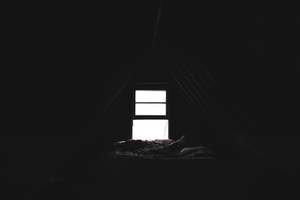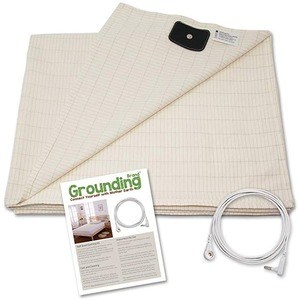Generate Endless Energy- Naturally (Part Four- Sleep Better)

“Sleep well, my little pretties!”, so said the Wicked Witch of the West. The problem is many of us simply do not. It impacts our energy and our work more than we know. So, let’s take a look at what we can do about it because you have more options than Ambien and the 88 others, all of which have side effects– some downright dangerous.
Before we cover these sleep suggestions, let me mention that the suggestion below actually work. I have not had the best sleeping patterns. Horrible, in fact. Was sleep deprived by the end of the work week, crashing on the weekend, until I began to implement the suggestions you will find in this post. They have helped immensely.
Now, in parts 2 and 3 in this series, we discussed energy management working on the concept that we have only a finite amount of energy to work with. We discovered ways to manage our energy more effectively. That way, we would be able to recover more of it to direct towards activities that are beneficial to our needs and goals.
We also noted that energy is used up unnecessarily by stress. We pointed out some of the ways you could reduce the stress factors through better energy management in your life. This also included the understanding that your energy is cyclical in nature. So, we covered how to best utilize those cycles for your advantage.
All of this falls under the category of energy management….but wait….there’s more! (as the sales huckster character of Johnny Carson used to say in his skits).
What if you could increase your energy naturally? By that I mean using no synthetic stimulants (like caffeine and other more dangerous insomnia medications such as those at the link above) and natural methods.
How do you encourage the body to produce more energy naturally?
How do you increase the ‘starting point’ or ‘baseline’ for your energy so that you have more of it to manage and direct as we discussed in the first posts on this topic?
Three Pillars of Energy Generation
Those topics are what we will look at next. We’ll call them the three big pillars of energy:
- Sleep
- Exercise
- Nutrition (including natural supplements)
Let’s begin with sleep because this is the most practical way to naturally grow your energy supply.
How Can Sleep Help?
We all need to sleep. Sleep is important because it replenishes our energy. As an analogy, if you have a smart phone and leave it on without recharging it, it will soon run out of energy. 
The same thing happens to us. Our way of recharging is through sleep. Short changing yourself in this category would be the same as not allowing your phone to fully recharge. Eventually, it will run out of charge when you need it most.
Sleep also allows our cells and body systems to rejuvenate.
Improper sleep habits not only depletes our energy but also doesn’t allow our cells and body systems to properly replenish themselves.
The bottom line is that no matter how well you manage your supply of energy, without proper sleep, you will soon run yourself down- energetically as well as biologically.
First Tip
The very first tip: start giving sleep the priority it deserves.
Are you getting 7-8 hours sleep a night? If not, you need to change your priorities and schedule your sleep more effectively.
Of course, this means you will have less waking hours during the day. However, if you get a good night’s sleep, you will operate much more effectively during your waking hours.
Consequently, once you get into the habit of sleeping properly, you will find that you actually will be able to do more in the fewer hours that you are awake. Your energy will be higher. Your ability to focus will be more available. Those “lost” waking hours will pay dividends with more effective productivity during the day.
Quantity is Not the Only Factor
Sleep quantity is only one part of the puzzle here though. Just as, if not more important, is sleep quality. In other words, you have to make sure that your sleep is truly restorative to get the most value out of it.
We can’t cover all of the suggestions in this post, but we’ll address some of the big ones.
A recommended resource on this topic which will cover in much more detail for how to get more value from your sleep is- Sleep Smarter: 21 Essential Strategies to Sleep Your Way to a Better Body, Better Health, and Bigger Success by Shawn Stevens.
Now granted, that’s a lot of promises in the title from one book. However, I know you will discover some very useful strategies, as I did, in Shawn’s book Strategies which I know you can use to improve your sleeping time which will make it well worth the time invested in reading it.
Room Darkening
Let’s begin with this tip because it is basic and one you can likely put to work quickly- darkening the room you sleep in.
 Now, room darkening doesn’t mean using an eye mask by the way. That doesn’t make up for a light source in your room during sleep time. It also means that falling asleep to the TV is another bad idea. (Tip: Get the TV and pc out of your bedroom.)
Now, room darkening doesn’t mean using an eye mask by the way. That doesn’t make up for a light source in your room during sleep time. It also means that falling asleep to the TV is another bad idea. (Tip: Get the TV and pc out of your bedroom.)
Unbeknownst to most of us, your skin has receptors that can pick up light. Medical research has discovered photoreceptors in your skin which are similar to the rhodopsin light receptors found in the retina. Rhodopsins are apparently part of the human skin’s self-defense against damage to our DNA.
The point being that if there is light in your bedroom, it is being picked up by your skin and sending messages to your brain that can interfere with your sleep. So, don’t try and cheat with an eye mask.
Studies have found that light disrupts our natural sleep cycles and can disrupt our melatonin levels by as much as 50%. That is not good for producing rejuvenating sleep.
As Shawn Stevenson points out in his book, melatonin has been proven to:
- Improve Immune System Function
- Normalize blood pressure
- Reduce the proliferation of cancer cells and tumor growth (including leukemia)
- Enhance DNA protection and free radical scavenging •Decrease risk of osteoporosis
- Decrease risk of plaques in the brain (like those seen with Alzheimer’s disease)
- Alleviate migraines and other pain
- Improve thyroid function
- Improve insulin sensitivity and weight reduction
The point being that you will not benefit from interfering with sleep with “light pollution” in your bedroom.
Suggestions on Room Darkening
Get yourself blackout curtains which are available at many retailers even on Amazon.
This also includes night lights for children. If you can condition them to sleep in total darkness, they, just like us, will get better sleep as well. (Perhaps a bit less cranky as a bonus too.)
Other sources of bedroom light to consider are the alarm clock. Get one with a red light, over a white light preferably with a light dimmer as well.
You can also cover over the display as well or use an amazon echo as an alarm clock which has no light until it reaches your specified wake up time. You can also select your wake up tone as well with the Echo.
Dimming your lights around the home before you sleep can help as well in setting you up to go to sleep. There are reasonably priced bulbs available from Amazon that will work with your Amazon Alexa or Google Assistant which you can control with your voice that are dimmable to any level color temperature. (Tip: On the programmable bulb. Make sure that it is programmable with 5G standard if your WIFI is running at this level. Most are set up for the 2.4G standard. You can set up your WIFI for the 2.4 standard before installation, but it may or may not connect.)
Other Sleep Suggestions
Use a Grounding Sheet
This is a really great tip which I read about some years ago which is called grounding or earthing. I initiated this tip after reading Shawn’s book. It really does help produce a sounder sleep. Even with a lot of suggestions implemented, I used to wake up with a slight dizziness. Thought it may be a mild form of sleep apnea. However, with the grounding sheet- no dizziness.
In the book Earthing: The Most Important Health Discovery Ever!, the 3 authors suggest earthing or grounding sheets for sleeping which they call “sleeping grounded”.
One woman cited in the book as follows:
A variation of the grounded sheet called the “recovery bag” was developed for Tour de France cyclists and other athletes in order to accelerate recovery from extreme exercises which “provides a cocoonlike Earth contact effect” which has become popular because apparently it works.
Check out the book on Earthing and it may open a whole new realm of sleeping options and healing options you never knew existed.
Keep the bedroom quiet
Cut down on noise pollution as much as possible. If this is not entirely possible, I have found white noise such as from a fan can help muffle external noise while not interfering with your sleep.
Eliminate electronic devices from the bedroom or, if possible, at least before you go to to sleep. (Do you really need to take your cell phone or iPad to bed with you?)
Yes, this means cell phones, TV’s, computers, iPads, Kindles, tablets and more. All of these devices tend to stimulate brain waves to waking levels forestalling sleep rather than encouraging it.
Some studies have indicated that talking on a cell phone before sleep can overstimulate the brain and depress delta levels which are essential for deep sleep. While it is somewhat muted in the article I read in the Scientific American, I would suggest that it has more impact than not. Sometimes study results can be downplayed based on who is funding them.
Monitor it yourself. If you find it more difficult to fall asleep after a conversation on the cell phone, then the cause is likely the impact of the phone on your brain waves.
Lower the Temperature
When it’s time to sleep, your core body temperature automatically adjust lower to help initiate sleep. If you sleep in a hot room, you are fighting your body’s natural physiological adjustment. Studies have determined that the optimal room temperature for sleep is better at around 60 to 68F. Temperatures above or below these ranges will cause difficulty sleeping.
As reported in Time magazine, a study conducted at the University of Pittsburgh found that insomniacs actually feel asleep faster than healthy controls (13 minutes as compared to 16) if the brain is cooled. Cooling the brain helps to produce melatonin which helps us to fall asleep and sleep more deeply.
Avoid Eating 3 Hours Before Sleeping
It stands to reason that if your energy is being directed to your digestive system to process food it will not be directed to your brain and other organs that need replenishment during sleep. Consequently, you will sleep much more deeply, recharge more effectively if you limit your food intake to 3 hours before going to sleep.
Avoid Caffeine
See my posts on coffee if this is a difficulty for you. It is well known, of course, that caffeine particularly the amounts found in coffee will stimulate the release of adrenalin. A stimulant you don’t need before going to bed. Even green tea has some caffeine in it, although much less than coffee in most varieties.
Additionally, non-organic coffee is especially dangerous because of the chemical residues left from processing. Even taken during the day, caffeine can interfere with sleeping patterns. Best to avoid it if you can. At the very least, use organic if you can and only take a cup in the morning.
However, if good sleep is your goal, it is best to avoid it altogether. See the book Caffeine Blues for the facts on this substance. There is more danger to it than sleep alone or what the industry would have you believe.
Alcohol Too
I’ll be short on alcohol as you can discover more in Shawn Stevens book on sleep. REM sleep helps us to process memories from short term to longer term. If your REM sleep is disrupted, your memory and your health can suffer.
While studies show that alcohol can help you fall asleep faster, the bad news is that your REM sleep is significantly disrupted as a result. That’s why people feel groggy after awakening from an alcohol-induced sleep. The “hangover” is the extreme case of this. More on this topic in Shawn’s book which has an entire chapter devoted to this topic alone.
There is more to cover here on sleep but these suggestions should point you in the right direction. If this is an issue, you need to pursue in more depth I would highly recommend Shawn Stevens book Sleep Smarter for more sleep suggestions that will be valuable for you.
Go to Part One Move on to Part Five – Sleep Better (Part Two)


